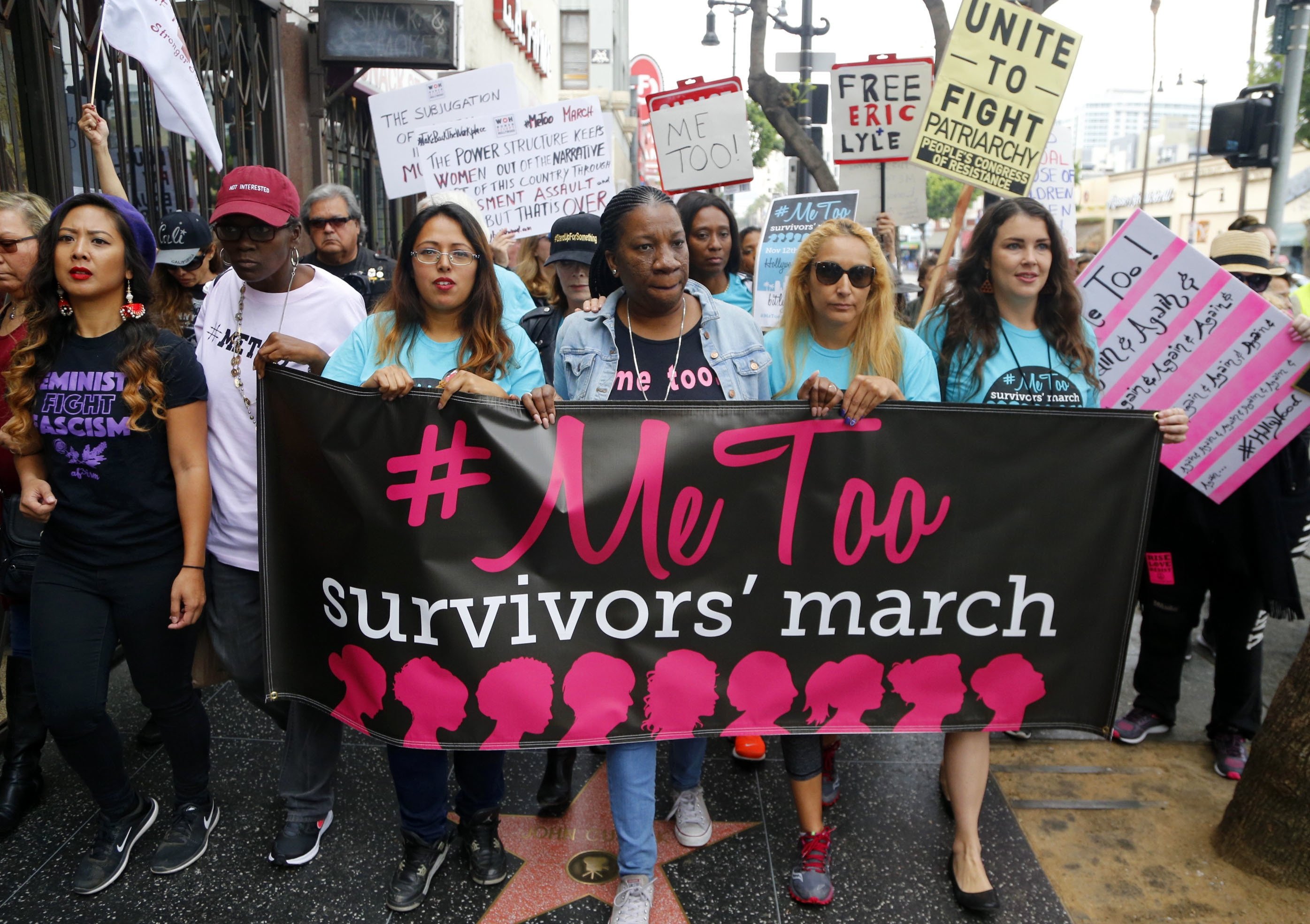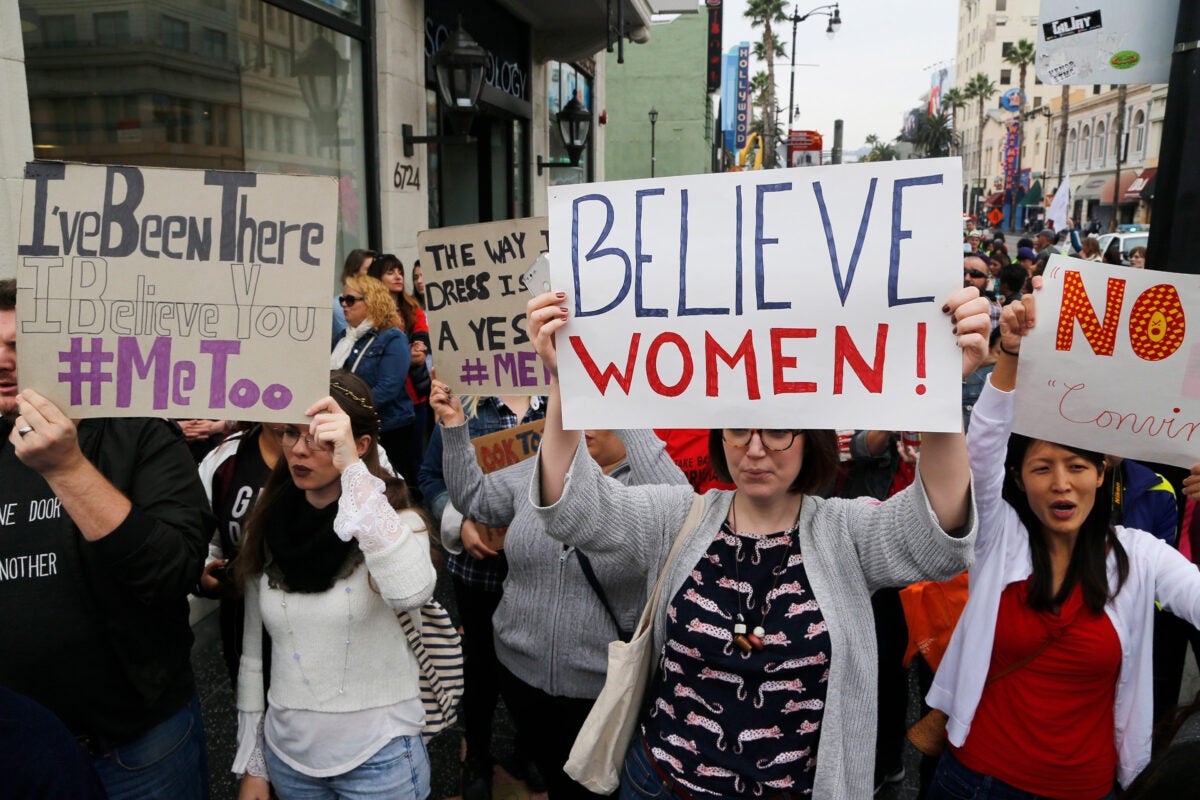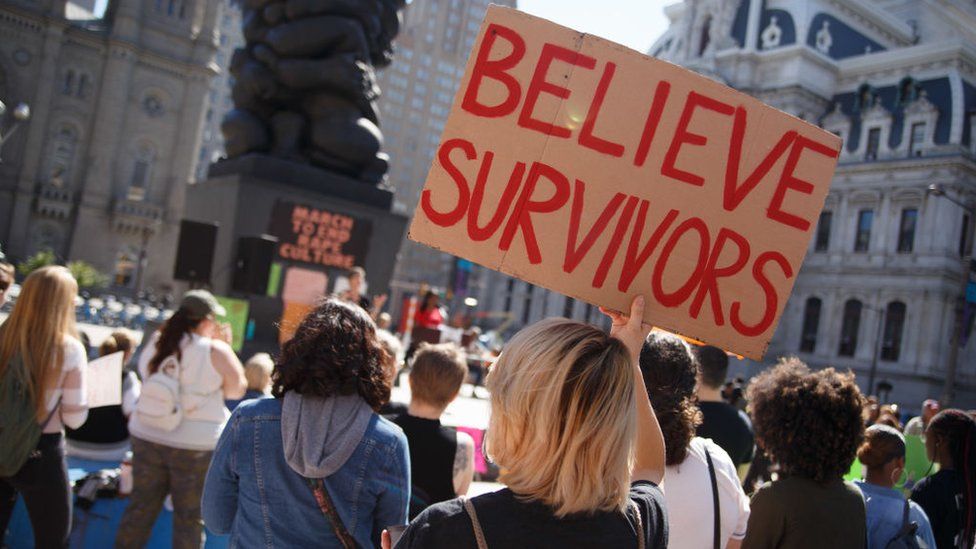Editor’s Note: FII’s #MoodOfTheMonth for January, 2022 is Our Evolving Relationship With Feminism. We invite submissions on the many changing aspects of the feminist discourse, throughout the month. If you’d like to contribute, kindly email your articles to sukanya@feminisminindia.com
Trigger warning: Mention of rape, sexual abuse
The role of the internet in promoting the evolution of socially significant conversations cannot be discounted. However, to not take into account the limits of the online world and see it as a valid replacement for consciously designed learning tools and environments would be a fallacy.
Social media is often seen as a democratic space where the voices of those who do not get represented in public discourse, in general, can get a platform. While this is true in many cases, with the #MeToo movement being a significant example, one also needs to take into account the fact that it is not by design. Social media works on algorithms focused on what is more popular, or more likely to ‘trend’- not who is least represented, or deserves a platform.
It is not the design of online public spaces that enabled such a movement to take place, but the fact that it was a conversation that a lot of people wanted to have. And the name of the movement plays a huge role in that.

What’s in a name?
#MeToo is a name that expresses and builds solidarity amongst the survivors, while exposing the horrendous scale at which the problem of sexual harassment and violence victimises individuals, from the moment it was ideated by Tarana Burke, a black activist from the United States.
This is by design because in its very conception, #MeToo is a movement of solidarity and healing. Twelve years before the hashtag went viral, when actress Alyssa Milano tweeted about it, Tarana Burke had set up the activist group Me Too through which she worked with young girls of colour who were survivors of sexual violence. Having spent a significant amount of time in her life on helping survivors heal, one of Burke’s initial reactions to the hashtag going viral, as explained in her book Unbound, was to worry about what this would mean for the trauma that people would experience.
‘My heart dropped at the thought of inviting people to open up and share their experience with sexual violence online without a way to help them process it. I knew it could lead to emotional crisis in the absence of caring, empathetic environments,’ she writes.
#MeToo created a sense of solidarity
The idea was to let these young girls and women know that they are not alone. This was the sentiment that was echoed all across Twitter as well, after the Harvey Weinstein story was broken by the New York Times when people started sharing their own stories with the hashtag as a response to Milano’s tweet.
The idea that so many survivors, who had perhaps put in years of work to create safe environments for themselves where they could heal and grow without having to constantly be bombarded with reminders of the abuse that they had suffered suddenly had to reface the magnitude of the problem, is not something that they chose to focus on, because the movement felt urgent, important, and revolutionary in the way that it not only highlighted the extent of sexual violence but also gave space for women to raise their voice against it. Not to forget the very real threat of another form of attack or silencing from the perpetrator which had kept the survivors silent all this while
A form of emotional labour that all survivors who spoke out were subjected to was the onslaught victim-shaming, bullying, and online harassment. In the United States, the women who raised their voices against the likes of Kevin Spacey, Morgan Freeman, and Bill Cosby have been accused of wanting to get ‘famous’. But the fact that each woman created a ripple effect through which others felt like they could speak up too, is undeniable.
Burke definitely has her priorities clear as well. For her, the movement was always about the survivors. While a BBC article reported her as seeing the Weinstein case as symbolic, it also highlighted how she did not feel that a sustainable movement could be born out of watching which celebrity ends up in jail. “What we need to be talking about is the everyday woman, man, trans person, child and disabled person. All the people who are not rich, white and famous, who deal with sexual violence on everyday basis“, she said.
Also read: How Does One Ethically Engage With Texts By Problematic Authors?

Highlighting second-hand trauma
A survivor sharing their story, by default, opened up the space to talk about secondary trauma because the name #MeToo itself acknowledges the need to have that conversation- that there is a ‘too’ because while the survivor is speaking up about their life, they are also seeing and acknowledging the trauma of those around them.
The ‘me’ made two things incredibly obvious- the first, that these are stories that survivors could still, to some degree, speak up about; the second, that a majority of these are the stories of the survivors who have been able to distance themselves from the situation to at least some degree where there is not an immediate threat to life
They are saying – I know that this conversation is not just impacting me. A lesser-discussed aspect of #MeToo is the second-hand trauma and emotional labour that a lot of survivors decided to take on in the process of being there for each other. From reliving their trauma and writing about it as a way of preventing further abuse and exposing potential abusers, to being constantly triggered by stories that kept hitting too close to home, women kept accepting this emotional labour as necessary.
The idea that so many survivors, who had perhaps put in years of work to create safe environments for themselves where they could heal and grow without having to constantly be bombarded with reminders of the abuse that they had suffered suddenly had to reface the magnitude of the problem, is not something that they chose to focus on, because the movement felt urgent, important, and revolutionary in the way that it not only highlighted the extent of sexual violence but also gave space for women to raise their voice against it. Not to forget the very real threat of another form of attack or silencing from the perpetrator which had kept the survivors silent all this while.

#MeToo acknowledged that the conversation is just starting
The ‘me’ made two things incredibly obvious- the first, that these are stories that survivors could still, to some degree, speak up about; the second, that a majority of these are the stories of the survivors who have been able to distance themselves from the situation to at least some degree where there is not an immediate threat to life.
What both of these things mean is that the #MeToo stories that we know of do not even scratch the surface when it comes to how widespread the causes and effects of sexual violence are, and to what degree. Of course, almost all institutions- governmental or otherwise- that were shaken up by the movement are attempting to understand and predict what is supposed to come next.
In her book Fight Like A Girl, Clementine Ford talks about how instead of focusing on dealing with the socio-cultural and judicial power structures and proceedings that contribute to the climate that makes sexual harassment and violence possible, this hyper fixation seems to be with making trauma less visible again. She writes, ‘#MeToo has blasted its way through our global society, and it’s left a bloody mess in its wake. It isn’t the job of women to clean up that mess, to figure out once again how our various traumas can be tidied away and put out of sight, the house in which we all live clean once more. Women do not need men to protect us; we need men to stop protecting each other.’
Also read: How Upper-Caste Women Continue To Dominate The Women’s Movement in India
Featured Image Source: BBC
About the author(s)
Khushi Bajaj (she/her) is an intersectional feminist and writer who holds an MSc in Media and Communications from the London School of Economics. Her work has previously been published by Penguin Random House, erbacce-press, Metro UK, Diva, Hindustan Times, and more. She is passionate about advocating for social justice and believing in the revolutionary capacity of kindness. She can be reached through email (khushi.bajaj1234@gmail.com).




